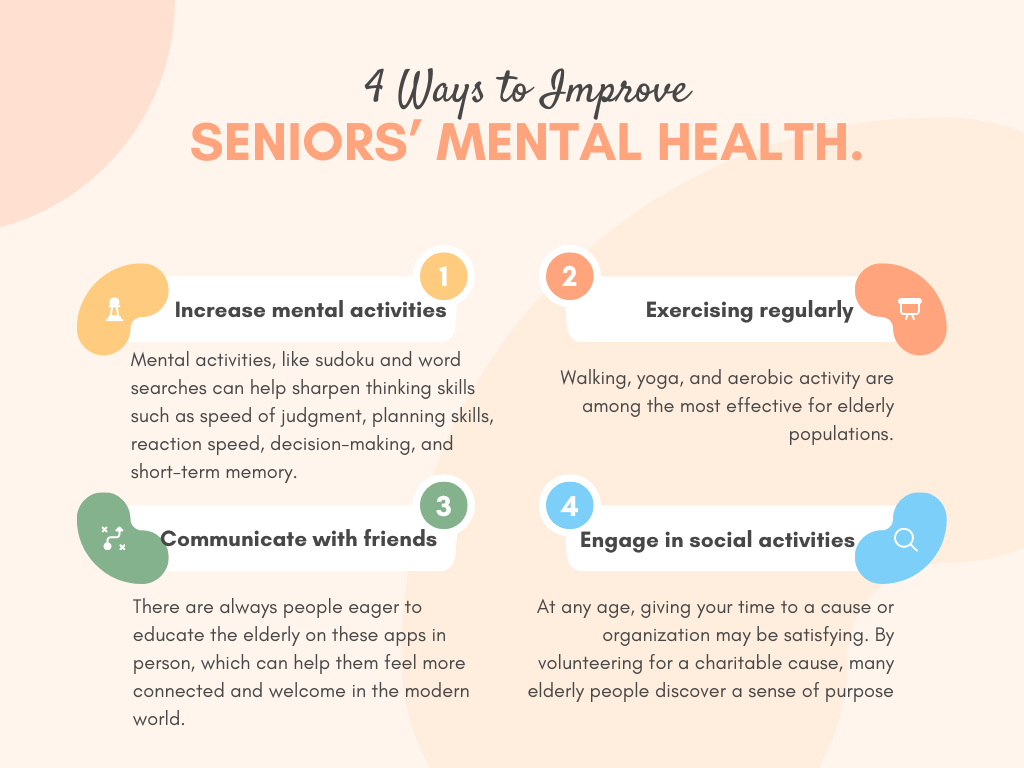Despite the fact that the likelihood of developing certain mental illnesses tends to increase with age, depression and other mental disorders are not a normal part of aging. Seniors’ mental health can be preserved by a variety of techniques and activities, a few of which are outlined below

- Increase mental activities. The brain needs stimulation to stay functional and avoid cognitive decline with age. Mental activities, like sudoku and word searches, can help sharpen thinking skills such as speed of judgment, planning skills, reaction speed, decision-making, and short-term memory.
- Exercising regularly. Regular exercise will improve both the mind and body by strengthening cognitive and physical functions. Walking, yoga, and aerobic activity are among the most effective for elderly populations.
- Communicate with friends. Seniors can keep things simple by writing letters or scheduling routine phone calls, but it can also be rewarding to teach elderly people how to interact with friends on social media. In addition to online lessons, there are always people eager to educate the elderly on these apps in person, which can help them feel more connected and welcome in the modern world.
- Engage in social activities. Just like other age populations, the elderly can gain many advantages from volunteering and engaging in social activities. By volunteering for a charitable cause, many elderly people discover a sense of purpose and renewed self-esteem. Participating in social activities also improves friendships and prevents social isolation, which is known to have a disproportionate impact on the elderly.
